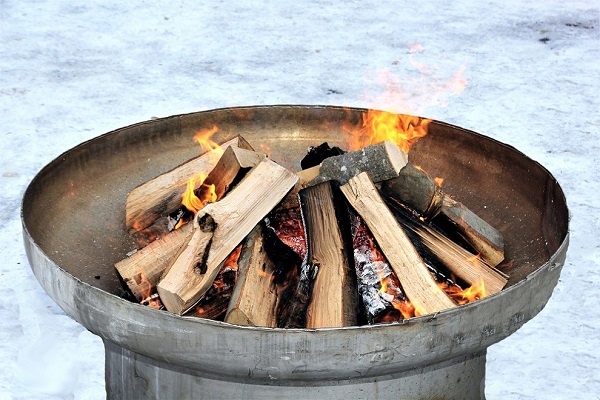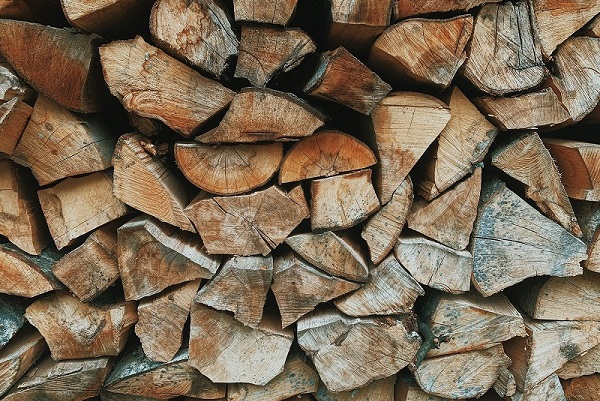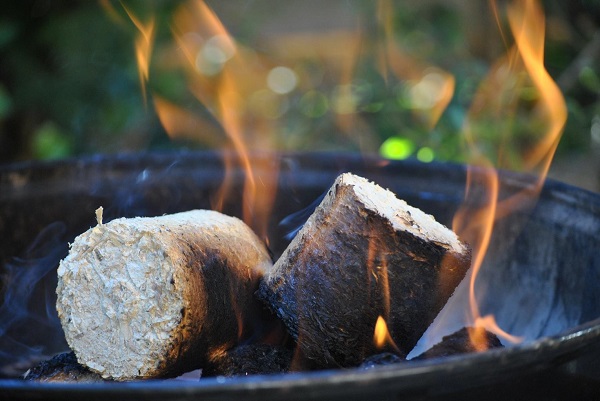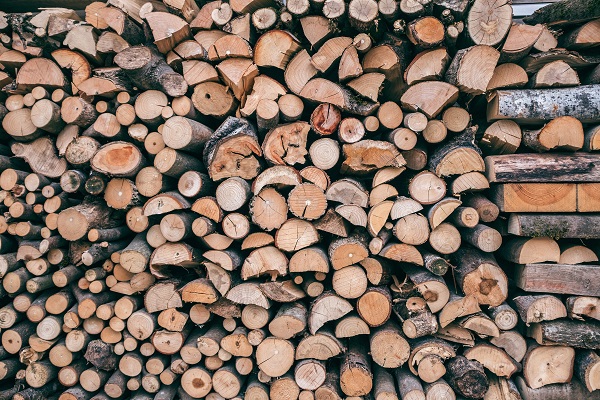Problems with Burning Firewood
Answered: why firewood doesn’t burn, burns too fast, smokes or smells
Fires are not always producing the lovely flames which we all love. Sometimes they go smokey, don’t want to stay lit, burn out too quickly or smell bad. Here we will cover common problems with burning firewood and some troubleshooting tips.
You may also like:
Why firewood won’t light
If your wood won’t catch fire or doesn’t stay lit, it may be because:
- Your logs are too big
Use some paper and kindling, then gradually increase the size of wood logs added to the fire. - It’s wet
Wet wood won’t light. Firewood is too wet if the moisture content is above 20%. It can be because it hasn’t been seasoned long enough, it got rained on or was stored in humid conditions. - Wood is too cold
If you are using firewood which you just brought inside from the freezing cold, it can be difficult to ignite it or to keep the fire going. It’s because the fire will need to consume a lot of energy to warm up the wood before it can burn. If you can, store inside a firewood supply at least for a couple of days. - Not enough oxygen
If there’s too much wood on a pile without enough air around, it won’t burn due to the lack of oxygen. Try to reduce the number of logs adding to the fire smaller pieces first. You can also increase the amount of oxygen by using a fire blower, like one of those below:
Pocket Fire Bellows – Weatherproof Collapsible Fire Bellowing Tool for Starting Fire – Camping Fire Blower
Fireplace Bellows – Air Blower
Why doesn’t my firewood burn completely?
If you leave the fire to end naturally and there are unburned pieces, it means that the logs were damp.
Wood not burning hot
If the fire doesn’t give off enough heat, it may be because the firewood has a high moisture content (hasn’t been seasoned enough or wasn’t stored properly). Another reason for it may be that the wood was still very cold when added to the fire (brought from outside just before burning) and consumes the heat to warm up the wood in the fire.
Firewood burning too fast
Why is my firewood burning so fast? The reasons why firewood burns too fast may include:
- old firewood
- too much oxygen
- too small logs
- wood is too dry
How do you make logs burn slower?
Old firewood
Well-seasoned firewood is easier to burn, but a very old wood may burn too fast.
It’s because wood, like any organic matter, is decomposing and becoming less dense over time. In a low density firewood there is less fuel for the fire, so it will burn more quickly. If you have firewood which you haven’t used in a few years (four years or more), it may be better to use it for kindling or fire starters as it will catch fire easily.
Too much oxygen
If the above isn’t the case, the reason why firewood is burning too fast may be that there is too much oxygen in the fire, which accelerates burning. This can happen in fireplaces or wood stoves. To slow down the fire, reduce the air flowing into the chamber.
If your wood is burning too fast in a fire pit or a campfire, this can be because of a strong wind (also causing too much oxygen in the fire). A solution to this would be using a wind shield.
Too small logs
Another reason for the wood burning too fast is the small size of logs. If you wan the fire going for longer without adding more, use larger logs.
Too dry wood
Kiln dried logs burn too quickly
Another common problem is that kiln dried logs burn too fast. This can happen because they have been artificially dried to an unnecessary low moisture content. To avoid this, you can try naturally seasoned wood or slow burning briquettes.
Why is my firewood smokey?
Two main reasons why firewoods smokes a lot are:
- It’s green unseasoned wood
- It’s damp due to improper storage
If your logs didn’t get rained on but produce a lot of smoke while burning or are smoking without flames, it may be because they aren’t seasoned enough. To reduce smoke use wood which was seasoned for a few months before using it for firewood.
Why does my firewood smell bad?
Firewood may smell bad if it’s rotten or moldy. Molds growing on the wood can smell like a damp basement while burning. Other reason for firewood smelling bad may be beatles living in it.
Apart from that, some firewoods are great when well seasoned, but may stink in the fire when still fresh. E.g. red oak is normally a great firewood, but fresh red oak smells like vinegar when it burns, because it contains a lot of tannic acid.
Are there any wood types which smell bad while burned?
Yes, there are some types of wood which smell while burned, even if they are well seasoned and you want to avoid using them for firewood. Wood types which smell bad in fire include:
- cottonwood
- locust
- ailanthus
- catalpa
- drift wood
- weeping willow
- poplar
- baswood
- black walnut
- buckeye
- silver maple
It’s interesting that some types of trees pick up smells from the earth that they grow in and this could cause a bad smell while burning. This can happen with oak or elm and some other types.
Other problems with burning wood are that it can release toxic fumes while burned, it can pop a lot or some people can be allergic to the wood smoke. Let’s look into these issues.
What wood is toxic to burn?
Some wood types can produce toxic smoke, they include:
- treated wood
- oleander
- rhododendron
- sumac
- poison ivy
Wood smoke allergy
Firewood smoke can cause inflammatory reactions, cough, eye irritation, sore throat and runny nose. In most people these symptoms aren’t severe and dissipate rather quickly. However, people with allergies or asthma can also suffer from irritation or respiratory issues when inhaling wood smoke.
Why does my firewood pop a lot?
Most firewood wood will naturally crackle and pop a bit. Excessive popping however can be caused by a high moisture and sap content in the wood.
How do you stop wood from popping?
To minimize firewood popping, use well dried wood, e.g. kiln dried firewood and store your wood in a dry place.
Final note
This covers the most common issues with burning firewood. We hope this helps you use your firewood more efficiently and enjoy your time by the fire!
What other problems with burning wood have you experienced and did you manage to solve them? Share in the comments.
You may also like:





